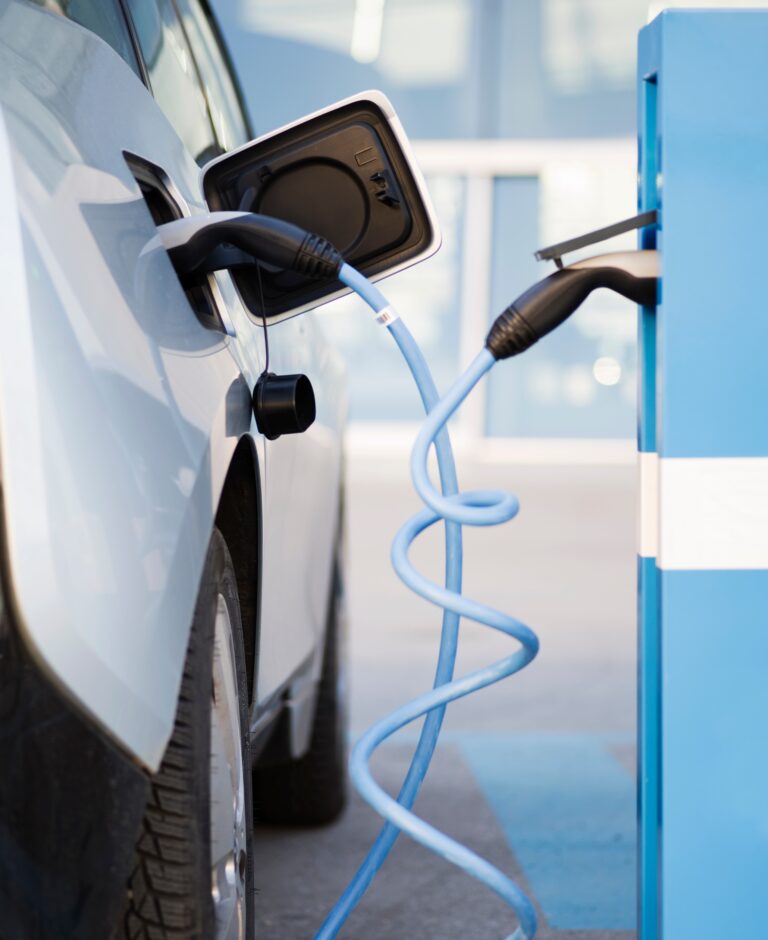The automotive industry is undergoing a significant transformation with the rise of electric vehicles (EVs). While these EVs represent the future of mobility, they also bring complex challenges and specific legislations in terms of raw material extraction, production processes, and environmental awareness. This blog explores how effective supply chain mapping software, as offered by Hubwatch, can support the path to a more sustainable future in the automotive sector and simultaneously assist in emphasising your positive image to both customers and policymakers.
Curious about what Hubwatch can do for you? Get a free supply chain scan and discover how you can optimise your processes.

The Growing Complexity of Electric Vehicles
Needless to say that today’s electric vehicles are no longer simple machines made of metal and rubber. They are advanced technological marvels with complex electronics, sensors, and battery systems. This technological progress has led to a growing dependence on scarce raw materials such as lithium, silicon, cobalt, and gallium. These materials are often extracted in developing countries under harsh conditions, sometimes even accompanied by exploitation, dangerous working conditions, and environmental damage due to this intensive extraction process. Additionally, the entire production process of an electric car also has a much greater impact on the environment than that of conventional vehicles. How do you, as a producer in this sector, handle this? How do you limit the environmental impact of production? And more importantly: how do you ensure that what you claim is actually happening?
The Role of European Legislation in Sustainable Car Production
Europe plays a leading role in promoting sustainable practices in car production through strict legislation. The European Union has stringent regulations regarding raw material extraction, production processes, and environmental protection. These regulations are designed to ensure that companies in the automotive sector comply with ethical standards and environmental norms throughout the entire production chain. With the implementation of the Corporate Sustainability Reporting Directive (CSRD), companies are required to report on various sustainability aspects, including CO2 emissions, social impact, and raw materials. Hubwatch’s supply chain mapping software can help every manufacturer in the car production process to better and more easily maintain control over the requirements within this legislation by providing detailed, transparent documentation about the origin of raw materials, production processes, and compliance with sustainability standards. This ensures that companies not only comply with European regulations but also meet consumer expectations in terms of ethical and sustainable car production.


Greenwashing and Customer Deception
How do you, as a manufacturer involved in the complex production processes in the automotive industry, prove that what you claim about your raw materials and production process is actually true? Unfortunately, some car manufacturers tend to use ‘greenwashing’ to create a green image without delivering actual sustainability. Greenwashing is a serious problem that can mislead consumers and damage the image of companies. To prevent this, transparency in the supply chain is essential.
Supply Chain Mapping and Hubwatch
Hubwatch offers solutions for digital supply chain mapping that enable companies to document the entire journey from raw material to manufacturer. This results in digital product passports that contain detailed information about the origin of raw materials, the production processes, and the involved suppliers. These product passports can be generated at the unique product level and communicated to the end-user with a simple QR code. Thanks to supply chain mapping, car manufacturers can:
- Ensure that raw materials are ethically and sustainably extracted, and that workers in developing countries enjoy safe working conditions.
- Prove compliance with strict European legislation regarding raw material extraction and processing.
- Assure themselves they are not engaging in greenwashing by showing a thorough and traceable production chain to the consumer.


Conclusion
The growth of the electric vehicle market brings complex and very specific challenges in terms of raw material extraction, production, and environmental awareness. Car manufacturers must take responsibility to ensure ethical and sustainable practices, both towards the government and the consumer. Supply chain mapping software like that of Hubwatch provides the necessary transparency to comply with European legislation and gain consumer trust. With these tools, we can strive for a future where electric cars are not only environmentally friendly on the road but also in their entire production process.
When it comes to environmental sustainability in the automotive sector, supply chain mapping with Hubwatch is key to a sustainable future for electric vehicles and batteries. It’s time for the industry to take responsibility and invest in a greener future for all of us.
Request your free supply chain scan and discover the power of Hubwatch supply chain software.

